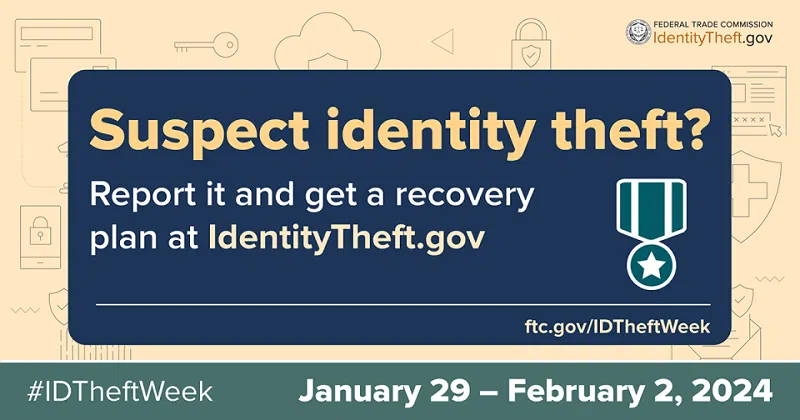Identity theft can happen in a lot of ways: a stolen wallet, a missing phone, or a hacked online account. Then there are impersonators — scammers who pretend to be almost anyone. They’ll tell you almost any story to get you to trust them, so they can steal your money or information. If you’re a veteran, there’s another risk: sharing information with someone who claims they’ll help with paperwork and filing benefits claims. But instead of helping you for free as they’re supposed to, dishonest advisers charge you — and may take and misuse your information, too.
What are some ways to protect yourself from identity theft targeting veterans?
- Don’t pay to file — or get help with — VA benefits claims. It’s free to apply for any type of veterans’ benefits. Scammers may offer to help you for a fee or a percentage of the benefits you get. Don’t do it. Get free help from an accredited representative.
- Don’t work with anyone who pressures you. Take your time to review paperwork and consider all your options, including doing nothing. Don’t sign blank paperwork to be filled in later. Also, be sure your VA benefits are deposited directly into your account — and not the account of an adviser, assisted living facility, or nursing home.
- Safeguard your personal information. Never share your VA login credentials or password. Check out VA’s advice on setting up multifactor authentication on your VA accounts.
- Get help if your VA benefits or services are affected. Call the toll-free VA Veteran Identity Theft Helpline: 1-855-578-5492.
- Check your credit report regularly. You’re able to get a free copy of your report every week from each of the three credit bureaus at AnnualCreditReport.com.
Finally, if you encounter identity theft, report it at IdentityTheft.gov. When you report, you’re telling law enforcement what happened and you also get step-by-step instructions on how to recover from any type of identity theft.








Comments